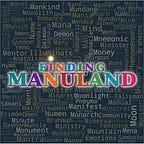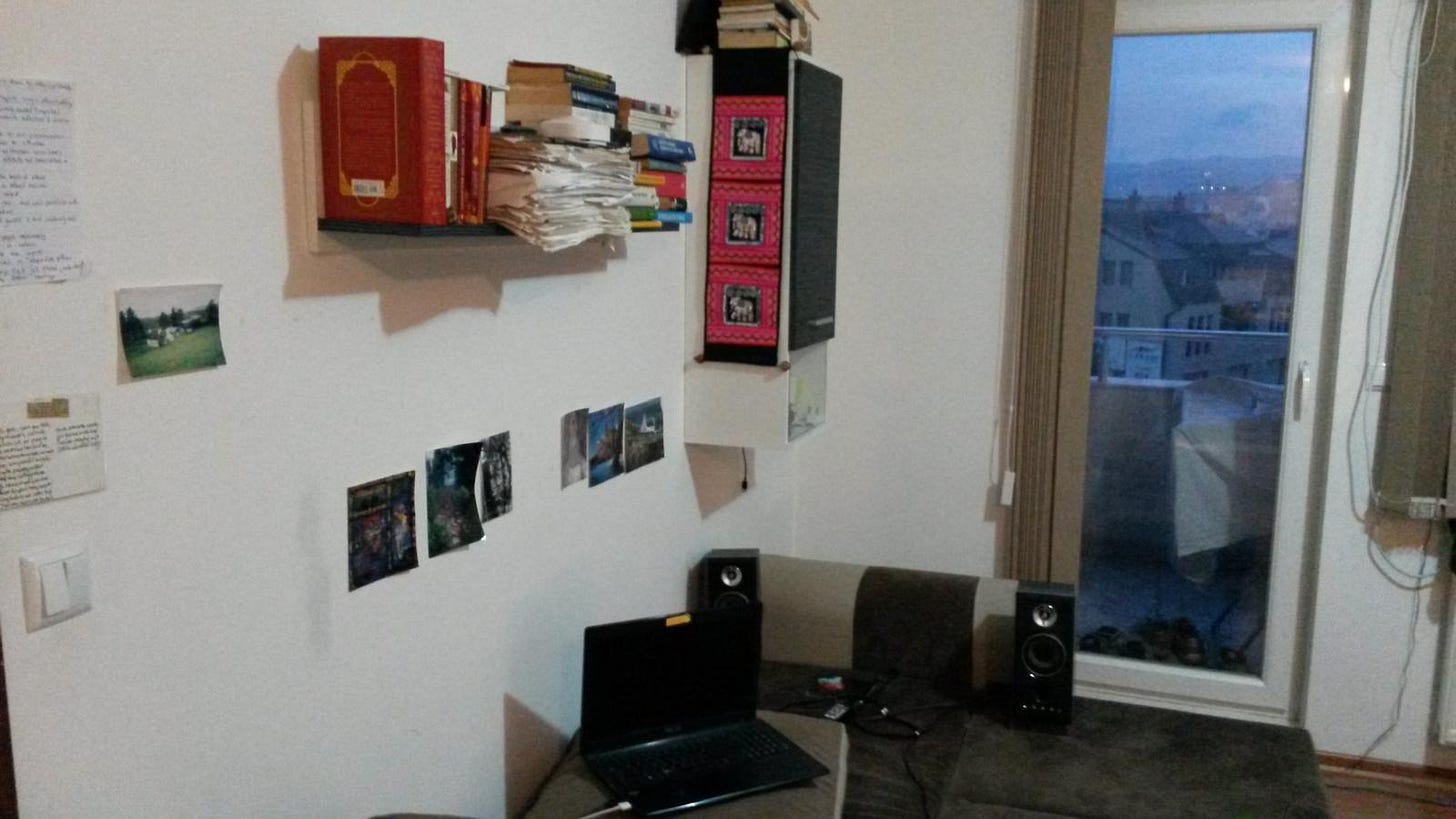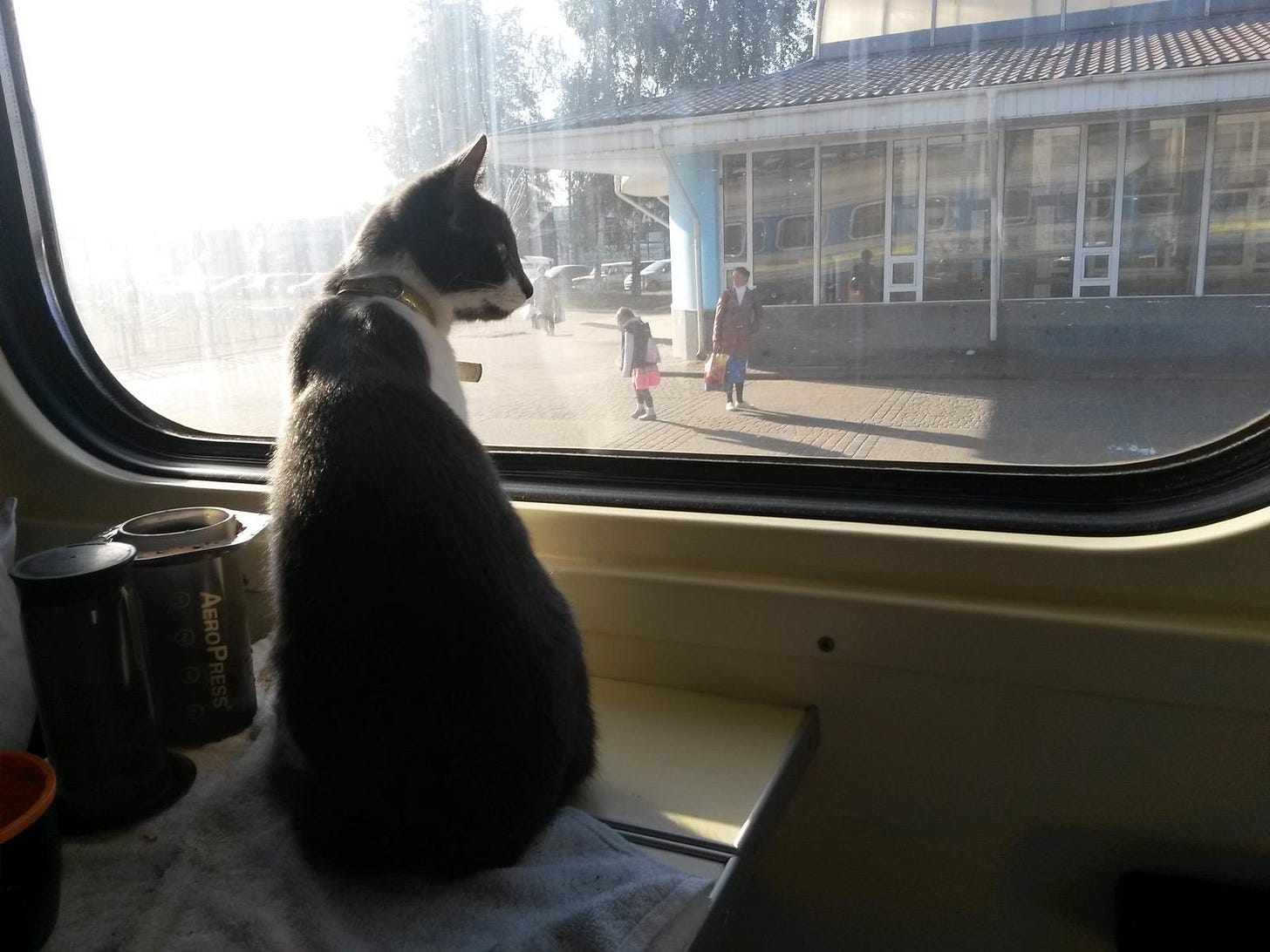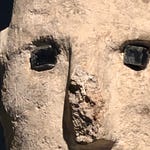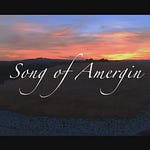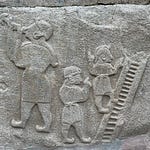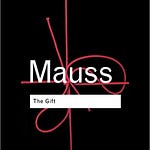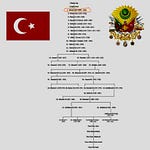My room in Severodonetsk (eastern Ukraine). As it was at the moment I read the email telling me Harry had died.
My room now, after multiple Ruschian lootings of the house.
My flat in Kosovo - our Mana remains in the manses, domains, maisons, and mansions in which we once lived.
My cat Stanitsia on my OSCE bullet proof vest that I wore every day in work 2015-2018 in eastern Ukraine.
On the way to Kyiv - at Kreminna (currently under a brutal Ruschian occupation).
Hi there, I'm Decoding Trolls. Welcome to Finding Manuland . This is episode five, Harry's Mana in Me. If you're wondering what happened to episode four, I'm gonna publish it over the next few days. I want to split episode three into two parts. I got some feedback that it's quite long and indeed it is quite long.
So we'll try and keep things a bit shorter and have more episodes. And I really appreciate the feedback on this. And thank you for being with me as I... learn as we learn as I learn this new format this new medium it is a new medium it's something more something different from radio something different from writing
from tweeting and I'm really excited by it and because I We are talking about mana and the exchange of energy. The timbre of my voice communicates my mana into your mind directly in a way that text doesn't. I'm not saying text is better or worse or this is better or worse,
but we will use all the weapons in our arsenal in order to help us communicate positive energy. manner. So before we've talked about mental models, what I mean by mental model is this archetype that we have in our mind of the world. And as we confront external reality and the environment around us and stimuluses,
these provoke or touch or stir our archetypes and Fortunately, if you're listening to this, you're probably, as I aspire to be, I aspire to have my archetypes not fixed, my mental model of the world not fixed. I want them to expand as reality expands. changes. Nevertheless, there are unchanging principles,
which for me is really summed up by the post-World War II legal order, not because I agree necessarily with everything, all of the content of the post-World War II legal order, the United Nations Charter, territorial integrity, the Genocide Convention, international criminal law, international human rights law, protection against being discriminated on certain protected grounds,
and all of these kinds of issues which most states have signed up to, but every now and again try to rescind their consent to, and our information space is full of violations of this set of ethical plans. And we'll come back to why these are very important in finding Manuland a bit later on. But just to say,
so these mental models that we're talking about, that's the general way I look at what mental models are. And the mental models most relevant to finding Manuland, as we've discussed, first, mana. Most of us didn't have any mental model of mana using that term. this energy we exchange as a function of being human,
the idea that we have this capacity as sentient beings, whether it's animals or humans, those animated, which interestingly is a reversal of the MN sound, but we'll come back to the meaning of this element in Finding Manuland a bit later on. But we also have this energy exchange on a cellular level between our mitochondrial genome,
which is about 32, 33 genes long, quite a short one. And then the famous one, the famous genome, which is the massive one, which is in the nucleus of our cells, the mitochondrial DNA, which actually is really key to to determining the identity and where the space where the Amnaya, who were the first Indo-European language speakers,
lived in Southeastern Ukraine and ancient human DNA analysis in itself plays a very, is a very important character in our book. and in finding Maniland. However, the meaning of mitochondrial DNA in this sense is our cells, the electric charges which this ATP energy which is created by our mitochondrial DNA, these little factories in each of our cells,
this energy is a model that emanates from us, it creates us, we are aggregates of billions and zillions of these cells, all of which have these little electrical charges made by mitochondrial DNA. And that itself is a model which can be seen in how we as aggregates of these zillions of cells exchange energy with others.
So it is a metaphor. It's a metis device, far light. It gives light to this idea of energy exchange from the micro, from the cellular level, to the macro, to the civilizational level, if we like. But We're most concerned in finding Manuland with the exchange of mana and energy as humans, individual humans,
because the purpose of all of this is to help us communicate positive mana in the moment, in the moments we find ourselves in today that we can recover, we can protect, we are in a situation where we're communicating negative mana
whether it's in a shop or in the school room or in work or just on the street or when we're reading a newspaper and all of this information is affecting our moods, our attitudes, our motivations, in our mind, we can take control, we can take back control of how
how we are reacting to the energy that we are receiving into our minds and Finding Manuland is mainly about that. You'll notice I'm going to tell you Finding Manuland is mainly about a lot of things but I'm going to reserve mainly about for what it really is mainly about. And so we have this now,
if you've been listening and reading my work, you have a mental model of what manna is and Finding Manuland is about expanding that. We expand our mental model of space. So between Ireland and India, we fill in the gaps. We will be talking about a lot of places,
villages in this area between Finding Manuland that we might not have been familiar with before and this is all a means of anchoring in our minds and our mental models a more expansive and more intense understanding of the geographical space between Ireland and India where traditionally we speak Indo-European languages and where Indo-European languages spread
from around 4100 BCE until today from an area most of us aren't familiar in southeastern Ukraine. So the third element is time and we want to spend expand our mental models of I'm explaining this idea by reference to, say, Old Testament time. I realize that others of us will have different reference points.
Many of us live only in the last 20 or 30 years, but I'm trying to expand our idea of time to around 4100 BCE. in this space in Southeastern Ukraine, where Indo-European languages were forged. And in order to expand our mental model of time so that when you're watching Flintstones, you will be able to say, no,
that's not genuine. They didn't have televisions then. so that if you are listening to some popular culture thing or you're reading you know very deep text or watching a film and it's imminent to the manner the energy of the message is ancient greece was the original culture in western civilization
you'll be able to not only react against this by thinking no that that's not the case the greek spoken indo-european language that indo-european language and the gods and the religion is some function of what the first Greeks inherited, the Danaeans inherited from the Yamnaya ancestors,
who we now know from recent studies of the mitochondrial DNA of ancient humans, of the first Mycenaeans, again M.N., that they emanated from Southeastern Ukraine. They had this Yamnaya, they had this ancient Ukrainian steppe ancestry in their genes. And also the coincidences of the names of gods like Zeus, Peter, and the words and the roots of verbs.
For instance, with Greek and Armenian, no one is quite sure and it's probably never been known which came first, but somehow basically Greek and Armenian separated. They were part of the same community and one set of people went one direction, the other went the other direction.
And the result of this today is we have Greek culture and we have Armenian culture. So it's about expanding our mental models of this over what mana means and the energy exchange so we can colonize the moment with it. a space between Ireland and India, time, and also cultures.
So I mentioned before how culture, the word occult, reveals what culture is. Culture is what is hidden. And we in Finding Manuland are going to reveal what is hidden. over the course of time in this space, all so that we remember what manna is in the moment.
The whole means of communicating all of these elements is through different characters, which we can imagine a character in a novel or a film, but actually in Finding Mannyland we think of as characters All the words maybe you're not that familiar with, which I've mentioned already.
It's places, it's times, it's people, it's villages, it's the names of writers, researchers. It's me, it's the time I'm telling you also about. So we talk about the long jure, jure. from 4000 BCE until today. But we also have the short durée, which is from November 2021, when in Eastern France, I saw on a warehouse site
The word Manuland and suddenly the moniker existed that became part of me and my mind, which described everything that was inchoate at that moment. And the idea of inchoateness is something I learned about a lot when I studied. I did a master's in business economics. administration at Oxford a few years ago and this idea of inchoate needs.
So you have supply and demand and when you have a hit product or service, that hit product or service has served what may well have been inchoate needs. No one knew they needed supply. a Walkman before they had a Walkman, you didn't know you needed to find your Manuland before I provided it to you.
And this idea of inchoate needs, which are imminent, they kind of don't exist until you find them. But finding Manuland will uh serve us this inchoate need we all have to become better mana managers and the clue is in the word manager directing your mana and directing others mana
having that responsibility so this episode is about um my friends harry his mana in me and my friend harry um I heard that he had died. I was in eastern Ukraine at the time, living in this city, which is now under occupation, and where the Russians killed 10,000 of my neighbours after February 24th,
2022.
So that is an immense source of sadness for any of us who are aware of this, and it never leaves my mind. But I was in Severodonetsk, in the house, the lovely house where I lived, with the lovely family I lived in. And I heard from Harry's brother, George, through email that Harry had died.
And so I had this long railway journey from eastern Ukraine, which involved an overnight. And I would wake up in Kiev, where I got a British Airways jet to London. And then I rented a car and then drove to Devon, which actually has an MN sound in its original name.
into Devonshire where Harry had lived and where his family lived. And over the course of this whole journey, which took about 30 hours, I had a lot of time to contemplate and meditate on the impact that Harry had had on my life. And this is really where this idea of inchoate need comes from because it was in
that journey, that mental journey, but also that physical journey, that quest to determine the meaning of Harry to me and to try and verbalize and understand what it was that he had affected me as one of many, many of friends that I have had in my life. And Out of that journey,
just to flash forward to the end of that journey, I had this inchoate need for a word, for a meaning, for a sound to communicate both to myself and to you as listeners what it means for other people to impact your destiny.
And when someone dies, perhaps other people have done this, you do a census of how they affected you. And this is part of the grieving process. And so I had identified an inchoate need. I didn't realize this was an inchoate need at the time for the concept, which I now use the word manna to describe.
At the time, I didn't really have any word for it. Now I know I have the word manna, so I can express it quite simply, that Harry's manna became a part of me. His energy became a part of me. And Harry's manna lives on inside me.
And so this is a way of modeling how manna works, not just in the moment to... to be sculpted or to impact our moods, our intentions, our attitudes, our motivations. Others' mana does that. And our mana, our energy obviously affects others' moods, motivations and attitudes in the moment. and intentions, indeed, intentions mens rea,
as it's expressed in early Roman law and in current English or American law, or Welsh law for that matter, or Indian law for that matter, or Irish law. We could go on, but we won't on that front. But this idea of manna can be modelled in this this sense of how other people impact on our lives. Now,
of course, in very complex modern lives that many of us live, and probably if you know what a podcast is, you live in this very complex world that I also live in, where I am being bombarded, I mean, in a positive way, with sensory perceptions and decisions and thoughts
the forks in the road a billion times a day i can decide what to do and how to react to information of all kinds and this idea of that information information there is mn in there as well And it's what forms us. It composes us. Compositive activity, as Buddhists talk of the concept of karma, is compositive activity.
So this is the idea that we are, as a bundle of aggregated cells, we are but. We are but. We are composed of, yes, of course, cells, but we are composed of what we do. Our compositive activity is is how we interact with the external environment. And it's nothing more nor less than that.
But mana, there is an eminence, there is something inside how we react in the world. And obviously that's one of the main purposes of power of manna is so to help us uh colonize our um our our that that part of us which is composing our life in the
moment so that we communicate positive manna and rescue what could be negative situations from to become positive situations to communicate So that's the main thing. But in the context of thinking about Harry and his impact or the impact of anyone else, this is a very simple model,
which happens to us a million times a day in a million different ways, so much so that it's very hard to keep track. keep keep um keep a rein on it but if we can distinguish between the main impacts if you like and again mn in main and and and secondary or tertiary impacts into our
life so it is very true that every moment in our life determines the next moment what we eat today may determine when we die or the aggregate of the poison or positive stuff in our minds and in our physical bodies, in our cells that maybe are replicating cells or our mitochondrial DNA will make a mistake right now,
which will impact people in zillions of years. And all of that is true. But we're trying to take a view on this and look at main categories. And in this sense, looking at Harry's manner in me and my life is both a model,
but it's also a model as a way of showing you how the manner of someone else in your life has impacted you and giving you a language for to talk about it and giving you something to perhaps reflect on.
But it's also a way of exposing and understanding what mana is and what I mean by mana and energy. And when I say manna is what remains of you in others after you leave them this is we can understand it say in the sense of food you eat an apple today and it impacts all of
the cells made that day and as we know from we know the yamnaya came from southeastern ukraine and from this area between the don and river and the Dnieper river of ancient and indeed modern Ukraine because of the food which the Yamnaya, the ancient humans,
the ancient Ukrainian Yamnaya ate while their teeth were being formed and we can now through amazing, through science, can examine MN and examine the teeth of these ancient Yamnaya humans and determine that the wheat, that the particular signature, the isotopic signature of the wheat, of the food they ate is imminent in those teeth even today.
So there is another idea of imminence and of manna, the manna of the food that was grown in those days is in their teeth. But again, we're focusing here on the main manor and also the serendipitous aspect of this. So I was on this long, long train journey, which I actually always loved to take.
And I miss taking it because I would get into the, I would have a whole little capsule compartment to myself on the train in Rubizhny, which is now a ghost city after Russia shelled it relentlessly. At around five o'clock and I'd wake up and around seven o'clock in the morning,
then trundling through the whole of Europe's largest country through Ukraine, I would wake up in Kiev and then I'd arrive at the train station and get into a car and go to the airport and then fly to Harry. And what I realized on this long journey, and I remember stopping near Salisbury Plain, near Stonehenge,
which will be a minor part of our story here. near Stonehenge and realising that actually having done a manna audit, and this is a concept which I introduce right here, but we'll be talking about again. Having done a manna audit, I realised Harry had been the most impactful person
human, apart from my close family, on my entire life's trajectory. I could make an argument for everything good that had happened to me in terms of career and the main bifurcation points since the age of basically 21 Harry had had that the greatest
impact and I remember stopping the car and trying to write it down as I said I didn't have a word for it then I didn't know about manna then I didn't know about Amen, sound, imminent in our language as a reminder, a manner reminder system. But I did have a sense that what remained of Harry,
even now he was going through the death process, what remained of Harry in my mind, in me, was highly significant. It was a legacy and no one could ever, nothing could happen that could take it away. And so... I guess this brings us back to the main point of finding Manu land which is if this
is the case that someone like in my case Harry has this massive impact their mana becomes a part of me and the remains of them are in my mind forever then if I turn that on its head surely I should be more inspired to leave positive mana everywhere I go. And again,
this is the main point of finally Manu Land and all of these stories and all of these characters is to try and anchor and embed in our minds this idea that we can control the communication of positive mana. And we'll be talking again about how do we determine what positive mana is But for me,
the standard is set by, for instance, the post-World War II legal order for which there is a consensus among humanity that we should not discriminate on the grounds of sex. we should maintain territorial integrity sovereignty we the human rights we have the right the human right to participate in decision making and nobody can take
this away in a valid way and so we have this whole set so that's for me is this is the standard if you want to determine what's positive what's negative what's neutral and Mana, if the meme you're promoting contradicts that, then I determine that that is negative mana. And obviously, no one really cares what I determine.
But in my own life, what I'm trying to do is communicate positive mana. And so for millennia, humans have exchanged mana instinctively. But finding Manuland will help transform us, I hope, into conscious mana exchange experts. This is the first manual which is ever published or spoken that teaches practical lessons in mana mindfulness.
And so the dictionary, as discussed, defines mana as a power or psychic force And I'm giving the tools, giving myself the tools, reminding myself of the tools to mobilize our family, our colleagues, ourselves, our family, our allies into selflessly gifting us manna and receiving our manna and the manna we all need to succeed.
And I grasped the power of active manna management, though without having the word to do it after Harry died. And I wondered about how others influence compounds permanently through our lives courses, even after they die. So certain things were set in train in my life and what I do by my interaction with Harry,
by his energy becoming a part of me. And these live on long after his death. So when I looked at it, I thought, well, because of Harry, basically, I got into Cambridge University to study Roman law. And without understanding Roman law, I would never have discovered the power of man or finding manly land.
I had been on a postgraduate scholarship to Georgetown University, studying intellectual history, philosophy. 18th, 19th, 20th century and postmodern intellectual history as a post-grad, Georgetown. And I reached that moment where many of us have in many times of our life, but particularly say if we're lucky enough to have gone to university or after school,
when we've um tried to work out what are we going to do next and I just needed a bit of space and time to do that and Harry offered uh me to come and stay in his house which I did in uh Devon which um uh which uh from where I concocted this mad
at the time mad plan to uh to basically go to Cambridge University and study law and so I'd always thought oh um Law is probably what I want to do because I want to impact on politics and on the world.
And I noticed a lot of the people I admired had studied law, so I wanted to do law. And I decided now is the time to actualize this. How can I do this best? I'll go to Cambridge. How do I get into Cambridge?
Well, I just went through all of the hoops while I stayed in this mansion in Devon. which is, interestingly, the original name of Devon in Roman times. It was Dumonia, so D-U-M-N-O-N-I-A. And that has been corrupted over the years into Devonshire, and now it is Devon. But there was even an M-N sound in Dumonia.
I can kind of see why they changed that, because it's pretty hard to pronounce. But presumably, if you're an ancient Roman, dumb nonia was pretty easy to pronounce but nowadays it's not anyway so i was in devon and um i spent a few months assembling my application you're getting all my
school transcripts and and coming up with the case uh to apply to cambridge uh and and i got in i got into this ancient law college there from which was found in 1350 to train to train lawyers and I studied Roman law there and international law and that's the source
of my the standard I use to determine what's positive manner and negative manner because I have this you know strong awareness of the post-World War II legal order and what we've inherited from that so basically I I scored my first diplomatic post in an organization called the OSCE, which most of us haven't heard of.
I hadn't heard of it. But while I was staying in June, then with Harry, his sister was working for this organization called the OSCE, Organizational for Security and Cooperation in Europe, which is 57 member states are part of it. And she was working at the time in Albania.
And it was lodged in my mind, the existence of this organization. And so then, flash forward, so this is around 1996. This is in 1997, actually, the autumn of 1997. And then in 2007, so only two years later, no, it was around 2011, actually. And I was living in Belfast and I was unemployed.
My job had finished with a political party which I had been general secretary of in Northern Ireland called the Alliance Party, anti-sectarian political party. And the funding for my post ended. I became unemployed. And so I was looking for jobs, applying for jobs, and I saw Ireland had been part of, it was leading the OSCE,
this organization at the time. And I thought, gosh, I'll have a look at that. I remember Harry's sister Evie worked for it. And I looked on their website and I applied for a job there and I got it. And that was my first big break in international and to become a diplomat.
And I went from living in a loyalist, loyal to the English crown, council estate, which I was living in because I was trying to get jobs. I had been selected for a council seat for a nomination in the party that I worked for,
but I needed to live in the area and the only place I could afford was this particular part of East Belfast. And so I went from there, from this situation, which was quite difficult from many perspectives, to arriving in Kosovo, in Southeastern Kosovo, to working as a diplomat. And that was amazing.
That set me on a course to discover the power of manna. And when I, part of the reason why I aspired to be a diplomat or realized it was possible, well, Harry's dad, he was both a diplomat and he had a master's in business administration. So this two combination, these two combinations,
seemed opposite to also being a lawyer. And so I've done all three, but there was this model in my life, which was of Harry's father who'd done his MBA at Harvard and then become an ambassador. And I thought, wow, that's an interesting model to follow. And I got to know him a little bit and that personalised it.
I didn't know very many, or if any diplomats, few children in school whose parents were diplomats, but they weren't part of my milieu. But to get to know one just made it seem possible to be one. And then I became one.
And while I was in Kosovo, my mission, I had a mission, MN, a mission in Mongolia, MN in Mongolia. And I went to Mongolia and I wrote to Harry's brother. And I said, I'm in Mongolia. And he said, oh, right, could you go to this place? And he suggested going to this Tibetan Buddhist monastery, Gelap Monastery,
which follows the Dalai Lama's tradition. And he asked, would I just take a few photographs for his thesis? because he had written a PhD thesis on a particular aspect of Tibetan culture. And he thought, maybe I can get a cover. I didn't have a very good camera. But anyway, I went to this monastery.
It was very cold in Mongolia, in Ulaanbaatar at the time, because Harry's brother suggested I go there. And lo and behold, a week later, I was a Buddhist. And I had had no tension of becoming a Buddhist. But... I became one and I am one.
And it's a very important aspect of power and mana because I realized as I was exploring this idea of mana and energy that actually it was the same idea that is in what we understand as karma. And then I looked up karma in which, and karma is compositive activity.
I looked up karma in the Princeton Dictionary of Philosophical Thought, and actually the entry is under the word karman, and it describes karma as an inflection, which is a linguistic term, of karman. And so mana, I intuited that mana was in Karman because it's this idea of an energy that continues through our mental continuum,
through our consciousness over time. And so I had intuited that what I was looking at, which I now understand as being the X energy, synchronicity, mana, whatever we want to call it in whichever culture, but we're focusing on Indo-European culture in Finding Manorland, that it was the same phenomenon. And in Mongolia and the Buddhist element.
And so that... is very was very important and perhaps one of the elements one of the things which I um uh which enabled me to become a Buddhist I think because I had no interest in religion when I landed at um in Ulaanbaatar that that time that it was very cold
minus 20 minus 30 uh I had no interest in religion I had no interest in Buddhism really I had no knowledge of it I had been in India and 21 years earlier. And again, Harry had been part of that because Harry's stepmother had sat next to some people at dinner in Ireland.
And these wonderful people funded and ran a charity to educate poor and clever children, mostly girls. all around the world, but they needed, they wanted to change the way they did things in India and Nepal. And they just happened to mention to Harry's stepmother that they needed someone to
go to India to travel around and go and visit various schools and parents of children whose educations they'd sponsored in these elite schools and basically do a consultation job. And Harry told me about this and I was like, wow. I want to do that. And so I spent six months in India and Nepal.
And so flash forward 21 years and I make this encounter with an ancient Indian religion in the clothes, in the guise of the Tibetan manifestation of it. But India is not this mystical place. It's a very real place for me. And my six months there became a very important part of me and my identity and my
life and my manner really affected me. The energy of India affected me, but not so much that I wanted to, I was interested in Indian religion or anything like that. And so there was this premonition in my mind in Mongolia when I become a Buddhist, it wasn't just from, I mean,
I liken the metaphor to use is really like a, I was like a golf ball hovering around the hole on the 18th green, perhaps, because when I became a Buddhist, people said to me, oh, I always knew you were Buddhist, but I didn't know I was Buddhist until it happened. And
My encounter with ancient Indian culture in the guise of Buddhism, which I now recognize is another Indo-European religion and imminent in many of the practices. which I engage in on a daily basis. And I'm not trying to convert you in any way, shape or form, because I see Islam, Christianity, and many Zoroastrianism.
There's a whole portfolio of Indo-European religions, which I conceive of as Indo-European religions. And the interaction between Indo-European culture and, for instance, Judaism in Judea around the time Judaism was forming, which is around empirically, we know around 1000 BCE, Indo-Europeans, ancient Ukrainians, the people spoke this language. I mean, at the time they called them Aryans.
living in Judea. And we know this from the Amarna letters from 1400 BCE, where the Amarna letters were found in ancient Egypt, well, in contemporary Egypt. And they include references to various Indo-European named kings, monarchs in the land of Judea. So this is before
uh, the, um, before the Jewish, uh, faith and community, uh, coheres and becomes an entity. So we even have Indo-European-ness at the very beginning of Judaism, which is something that might, um, uh, confuse our mental models of how things work. And this is what Finding Man and Land is about because I, I've worked on intuitions and the
the phenomena and the things which I've discovered are just so amazing that I had to establish this podcast. And so that was part of why I did that. And then when I was from Kosovo, from the OSCE, I ended up in working for the OSCE also in Ukraine. So Harry's Manor was in that as well.
And suddenly I found myself in eastern Ukraine, where I discovered the Yamnaya eventually, not for a few years after 2015 when I arrived there, and Manna. I had this, I realized, okay, now maybe I can do a master's in business administration. because I have this job where I have a bit of time,
and I have the money now to pay for it, and maybe I never will again. And so I conceived of this idea to do administration, a master's in business administration, the MN administration at Oxford, which I did do. And that gave me access to the Bodleian Library, which is one of the great libraries in the world.
And for For around eight years, I had online access to about 13 million texts. And out of that access, from February 2020, when I really started researching MN and MANA and trolling and various elements in finding Manuland, this would not have been possible for me to do if I hadn't had access to to the Bodleian online,
sitting in my apartment in central Dnipro in Ukraine, and then laterally after the full-scale invasion in Ireland, in the west of Ireland. So Harry's Manor was in that through the connection with, I wouldn't have got into Oxford to do an MBA had I not gone to Cambridge, through the OSCE, which...
gave me the time the job the money to go to Oxford and so Harry's Manor is in me all the time and everything I do it's in everything I say it's in this podcast and if I just leave you I'm not going to leave you with a cliffhanger today And you'll be happy.
And this is going to be the end of this episode because I'm going to try not to go on too much. But just a little exercise that you think through how others' manner has combined with yours and of which you're composed.
in a way i'm sure we all have a harry in our life we all maybe have if we're lucky we'll have a few harrys in our lives but maybe there's someone who's the main person and you may not even recognize them as such because it wasn't until that
long journey from eastern ukraine to uh dumonia after harry died that i realized wow he is the most important impact on my life apart from my close family And so let's leave it on that positive note for now. Great.
Continued:
Continued from:
First in series:

